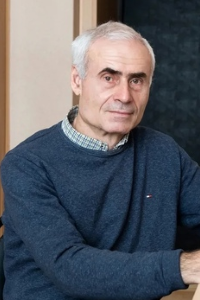The primary purpose of the laboratory is to develop a new generation of flexible high-performing catalytical reactor systems based on structured catalytic agents (adsorbents) for an integrated processing of natural and associated gases, as well as biogas with the use of various processes.
Activities of the Laboratory
The innovative nature of the project is about obtaining fundamental knowledge in the area of developing new classes of nanoengineering structured catalyst agents based on non-precious metals or with the use of the cheapest precious metals applied in industrial catalytical processes by combining theoretical approaches with chemical and technological data. Long-term innovations should result in developing new eco-friendly chemical processes of manufacturing basic, fine and special organic chemicals with high selective abilities with the help of nanosized metallic catalyst agents based on structured headers (foil, foam, fiber and ceramic headers).
The novelty of the proposed work is about combining structured headers with nanoengineering particles of non-precious or the cheapest precious metals, applying ionic liquids, organometallic frame structures, mesoporous silicate materials and microwave activity in developing structured nanoengineering catalyst agents for various catalytical processes, the majority of which are not sufficiently examined in terms of applying cheap nanostructured catalyst agents. Where possible, catalyst agents will be characterized in-situ upon receipt, during and after the reaction with the help of the relevant methods of examining the surface.
The processing of natural gas, associated oil gases, biogas and shale gases into valuable products is an extremely important task that may be handled only through the use of new generations of catalyst agents and adsorbents. A reduction of using costly metals, such as precious metals, gold and rare metals is a highly topical issue globally. Even partially addressing this issue will enable reducing the dependence of industrialized countries on external sources of such raw materials, such a China, South Africa and Latin America. The majority of these materials are used in various types of catalyst agents (cleaning exhaust gases, processing oil products, in fine chemical technologies, drug industry, fuel elements, etc.). A material reduction or even a complete elimination of using precious metals in catalyst agents, especially along with the use of affordable and cheap transition metals, structured headers and microstructured reactors operating in the non-stop mode, opens new prospects and extends competitive advantages of the Russian economy. The oil and gas processing technology is a pretty established and conservative area as regards similar substitutions, but the demonstration of the advantages of structured nanoengineering systems will possibly make this sphere innovative too. The production of basic and fine organic chemicals, as well as the drug industry is quite susceptible to innovations, which allows integrating and scaling new catalytical systems within tight deadlines.
